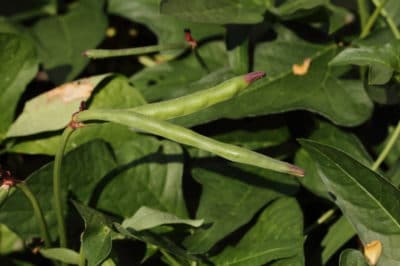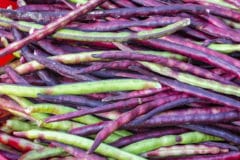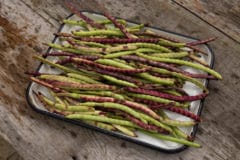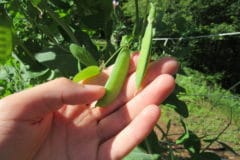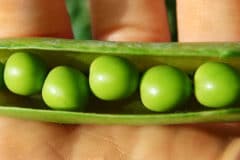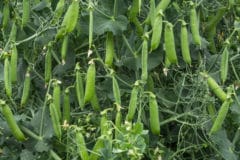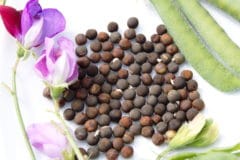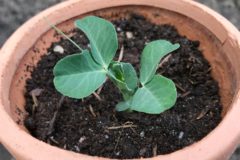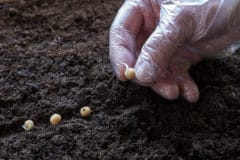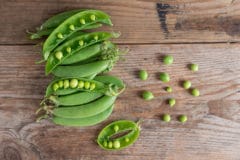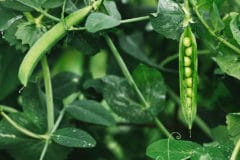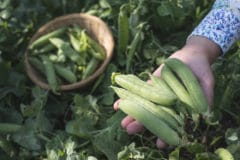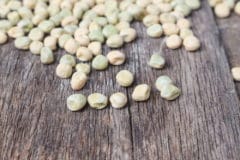How To Plant Purple Hull Peas
With a 65-75 day lifecycle to harvest, farmers often get two or even three crops of southern peas per year. The first seeds are planted in late spring or early summer as soon as the soil warms consistently to 62°F (16°C).
Plant them 1/2 inch deep and 2 inches apart in well-draining soil. They aren’t too picky, work some organic matter, worm castings, manure, or compost into it prior to planting. After planting apply a 2 inch layer of mulch.
Mulch can be:
- Straw
- Wood Chips
- Leaves
- Compost
Type of Pea
Purple Hull Peas come in different varieties, they are categorized by their growth habit. Choose a variety that suits your particular garden. Each one will have slightly different needs.
Bushing varieties like the Charleston Greenpack don’t need any trellis or support system to grow. They will stay low to the ground and support themselves.
Semi-Vining plants like Coronet or California Pink Eye take up less space than a traditional vining type and mature earlier. Trellising is optional but can increase yields.
Vining varieties include the traditional Pink Eye and the Mississippi Pink Eye. These vines can grow up to 8 feet long and require a trellis for optimal production and space efficiency.
How to Care for and Harvest Purple Hull Peas
When peas pop out of the ground, thin them to between 4 and 5 inches apart. Other than this and regular watering there isn’t much care. Keep the ground moist but avoid soaking it, they can be over-watered.
Harvesting purple hull pea plants is a lot like harvesting beans. You want to wait until the pods have reached their full mature state before picking them. You can even let them dry out somewhat on the vine. If there is no danger of mold, wait until the pods are dry and brittle.
Shell the peas immediately after harvest. They can be kept fresh in the fridge for a few days, frozen, or dehydrated for long-term storage.
